
Dutch national policy for socially responsible public procurement
Public buyers can help prevent child labour and exploitation. Read more in this article about the usefulness and the need for responsible procurement and get tips on how to put in practice the Social Conditions.
This article has been written by SOMO researcher Gisela ten Kate for the Dutch ‘Tender Newsletter’.
We all now and then purchase products manufactured under poor working conditions. Take for instance computers and smart phones. A few years back a wave of suicides hit Chinese electronics factories. Workers there were doing twelve-hour shifts, during which they spent most of the time standing, and they were not allowed to talk to each other. Now it has emerged that workers in this sector are handling benzene without proper protection, even though it can cause leukemia. Other commodities that also carry serious social risks are coffee, natural stone and clothes. These are products that are purchased regularly in large volumes by ministries, municipalities, hospitals and education centres. Think of workwear, beverage vending, or the redesign of streets and public spaces.
Church steps contaminated with child labour
In 2007 the Eindhovens Dagblad (local newspaper) published the following story: “The stately new steps that lead to Eindhoven’s St. Cathrien church, owned by the municipality, are soiled not only with beer and grease stains, but in all likelihood, with blood, sweat and tears. Those steps are made out of Chinese quarry stone, which according to experts, is extracted 9 out of every 10 times, under inhumane conditions. But at the time of tendering and awarding the contract for the paving of Catharinaplein, in late 2005, none of this was known in Eindhoven’s city hall. (…) Across thousands of Indian and Chinese quarries, intensive child labour and disguised forced labour –with daily wages only just above one euro– are the rule rather than the exception.”
A review of Dutch policy for socially responsible public procurement
The Government is trying all sorts of measures? to stimulate companies to take responsibility of their entire supply chain. One of them is sustainable procurement. With public spending at around € 60 billion, government itself has quite a considerable purchasing leverage. The national government has therefore developed a new set of tools, called the international Social Conditions. Any public contract above the European threshold must since 2013 take these conditions into account. Municipalities, provinces and other public institutions are invited to apply them too. The idea is that companies that supply the government should be able to demonstrate that they are respecting human rights.
Early this year the Centre for Research on Multinational Corporations (SOMO) wrote a report titled A review of Dutch policy for socially responsible public procurement. It looks at the Social Conditions and how they are put in practice by central government agencies and regional or local authorities. This article explains the usefulness and the need for socially responsible procurement.
Preventing human rights violations
Labour rights are a part of the universal human rights, drafted by the United Nations (UN) in 1948. Subsequently, the ILO (International Labour Organisation) went on to set international working standards. Namely: freedom of association and the right to organise, a ban on forced labour, the abolition of child labour, freedom from discrimination, the right to occupational safety and health, working hours, ‘living wage’ and to employment security. Unfortunately, these labour standards are not respected in many sectors. Two sample cases are presented:
Exploitation in electronics manufacturing
In recent decades, production processes for electronics, such as telephones, computers and tablets, have to a large extent been displaced to special economic zones in low-wage countries such as China, India, Thailand and Mexico. Electronic products are often made in work spaces that are unhealthy and unsafe. Workers cannot make a living from their wages, they toil through long shifts and are forced to work overtime. In addition to that, they hardly have any opportunities to defend their rights; unions are given very little leeway and there isn’t a semblance of fair collective bargaining. The industry is also making increasing misuse of vulnerable segments of the population such as young women, migrant workers, students and temp employees.
Collapsing factories in the garments industry
The garment production chain is complex and presents different social issues at each step of the production process – cotton-growing, spinning, weaving, dying and stitching. The most important abuses in the sector are caused by the pressure buyers exert on manufacturers to keep production costs low and delivery schedules tight. This pressure is communicated throughout the chain all the way down to the workers: they regularly grind out 70 to 80 hour weeks to reach their output targets, and even then, they still don’t earn enough to make ends meet. Working conditions in garment factories are staggeringly unsafe, and in the past years fires and collapsing buildings have taken thousands of human lives. Moreover Discrimination, violence, child- and forced labour are no exceptions in any of the important garment-sector countries such as India, Bangladesh, China, Pakistan, Cambodia or Vietnam.
Firms that have their goods produced in low wage countries often find themselves associated with labour rights violations. At the same time, it doesn’t seem that companies are capable of overseeing the risks in their own supply chains and find measures that will prevent the violations. Large purchasing organisations (especially in the public sector) are in a position where they can ask questions about these issues and put companies to the task.
Applying the Social Conditions: where do we start?
However simply the policies are laid out in the Social Conditions, they still entail a new way of working for buyers. For instance, the Social Conditions are meant as contract performance clause. This calls for a dialogue with market actors, or in any case with the contracted company. A step-by-step guide of each phase of the tender-procedure can be found on the website of the Dutch Public Procurement Expertise Centre(opens in new window) .
Compiling information about the origin of products is the most important step when applying the international Social Conditions. This knowledge is not just needed for inclusion in the tender procedure, it will also be important at the contracting stage. When signing the contract, the company indicates whether there are any risks. The purchaser then initiates a conversation about the choice, and commitments are made with a view to reducing the risk of violations. Additionally, the buyer assesses the company’s action plan. Some sectors have their own chain initiatives, such as the clothing (Fair Wear Foundation) and coffee industries (Max Havelaar, UTZ Certified and Rainforest Alliance). If the company is a member of one of them, the public buyer doesn’t need to require any further efforts.
Putting into practice the Social Conditions does not imply that companies have to reform their business practices overnight. But the companies that supply governmental agencies are made aware of their responsibility to keep tabs on the working conditions throughout the entire supply chain.
Electronics Watch – guidance for procuring sustainable electronics
There’s a specific organisation that helps apply the Social Conditions when purchasing ICT hardware: Electronics Watch. This is a European organisation that pursues to improve workers’ rights in the electronics sector worldwide. To do so, Electronics Watch monitors working conditions and puts pressure on brands and their suppliers to introduce structural improvements. Electronics Watch provides its member organisations with product-specific social criteria and data on current conditions in factories. For more information go to www.electronicswatch.org(opens in new window) .
Have their been any positive experiences yet?
The SOMO report mentioned earlier shows that public authorities hardly apply the Social Conditions. They only referenced in 3 of the 25 cases researched. In contrast, 60% of the cases analysed did point in one way or another to one or more ILO standards. Sometimes the only mention is, for instance, the ban on child labour. It is also worth noting that social criteria are applied at the selection stage. The advantage of that is that the buyer is able to privilege a bidder who is leading the way in the respect for human rights. And that can challenge companies to demonstrate more commitment on this front. The report indicates that the municipalities of Groningen and Utrecht are taking steps in the right direction. Read for more details the full report on the SOMO website.
A school case
During the tender procedure for a large order of natural stone to redesign its station square, the municipality of Utrecht applied the Social Conditions in their own particular way. The municipality included international labour standards at every stage of the procurement process. All bidders are asked to present an action plan where they lay out a proper risk analysis and the measures that will minimalise possible risks. The plan presented will be assessed in the selection phase and counts towards the award decision. The tender documents are available at www.tenderned.nl(opens in new window)
Make a start today
Do not wait another day to start preventing child labour and exploitation. The more questions public buyers ask about working conditions, the faster the market will move to deliver fair products. Here are some tips for public buyers:
- Read up on the social situation surrounding the extraction and production of goods. Run the CSR Risk Check(opens in new window) , search news sites and look through the website of SOMO and Stop Child Labour(opens in new window) (Dutch article). Read the guide (Dutch only) to the Social Conditions (opens in new window) on the website of the Dutch Public Procurement Expertise Centre.
- Develop a policy for socially responsible public procurement that is appropriate to your organisation, taking the Dutch Social Conditions as a minimum. To see an example, look at the municipality of Utrechts’s tender specifications for natural stone.
- Start with products known to be often produced under poor labour conditions, such as clothes, natural stone and electronics. The organisation Electronics Watch(opens in new window) provides guidance and also independent information on the working conditions throughout the electronics sector.
- Seek partnerships for joint purchases. Increasing purchasing power will also increase the impact of the Social Conditions.
- Publish the policy you have chosen, so as to inspire others.
Do you need more information?
-

Gisela ten Kate
Coordinator MVO Platform
Related content
-
 Gisela ten KatePosted in category:Publication
Gisela ten KatePosted in category:Publication Gisela ten Kate
Gisela ten Kate
-
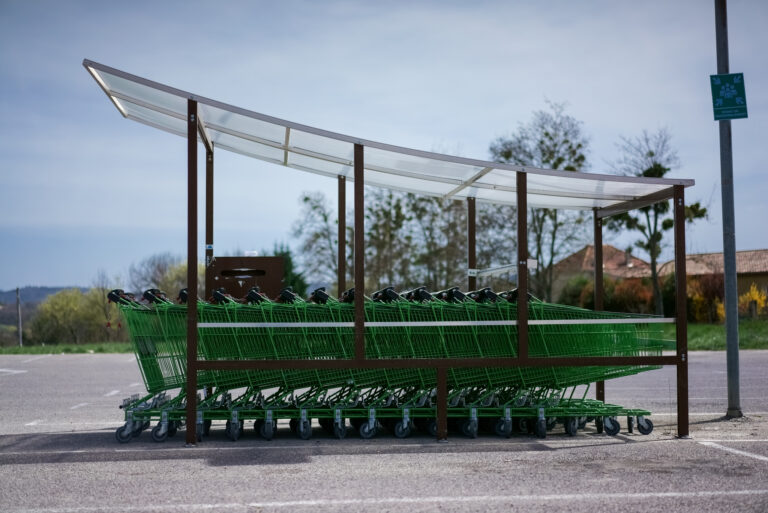
-
 Pauline OvereemPosted in category:Publication
Pauline OvereemPosted in category:Publication Pauline Overeem
Pauline Overeem
-
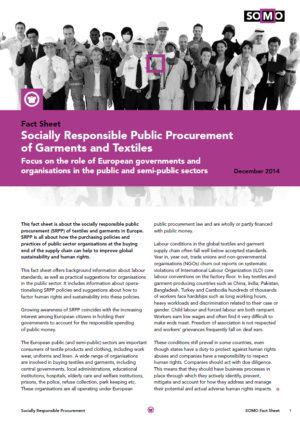 Socially responsible public procurement of garments and textiles in EuropePosted in category:NewsPublished on:
Socially responsible public procurement of garments and textiles in EuropePosted in category:NewsPublished on: -
European Commission needs to show leadership for socially-responsible public procurementPosted in category:NewsPublished on:
-
 Best practices in sustainable public procurement of IT hardware in EuropePosted in category:NewsPublished on:
Best practices in sustainable public procurement of IT hardware in EuropePosted in category:NewsPublished on: -
 Pauline OvereemPosted in category:Publication
Pauline OvereemPosted in category:Publication Pauline Overeem
Pauline Overeem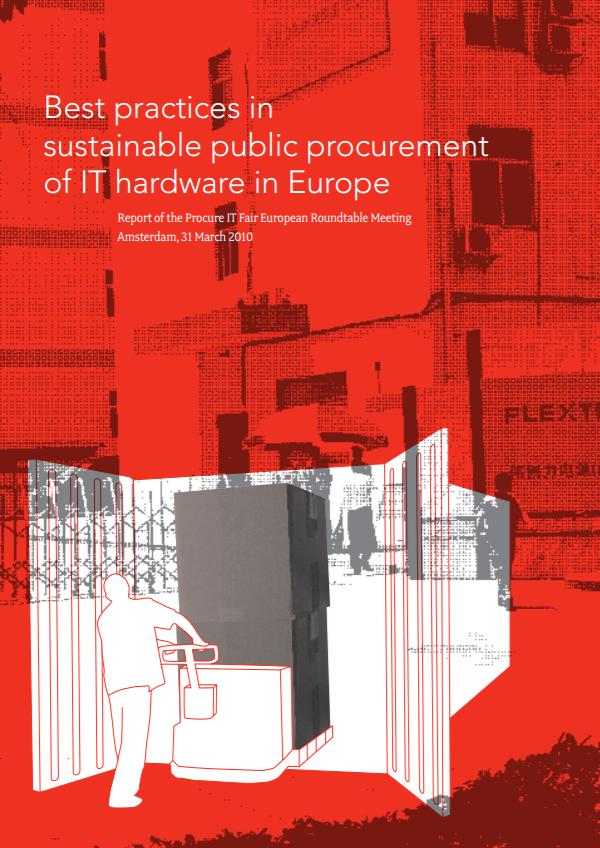
-
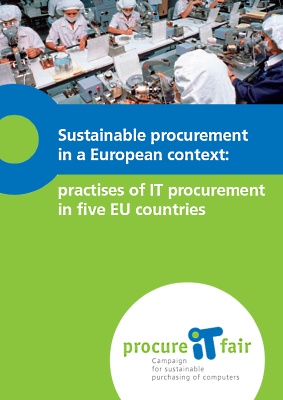
-
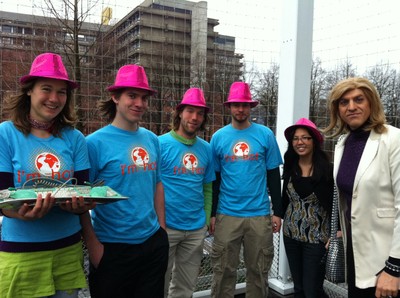 Sustainable procurement of computers – an effective tool for improving labour conditions in the electronics industryPosted in category:NewsPublished on:
Sustainable procurement of computers – an effective tool for improving labour conditions in the electronics industryPosted in category:NewsPublished on: -
Sustainable Procurement in the European Union Published on:J. OldenzielPosted in category:PublicationJ. Oldenziel

